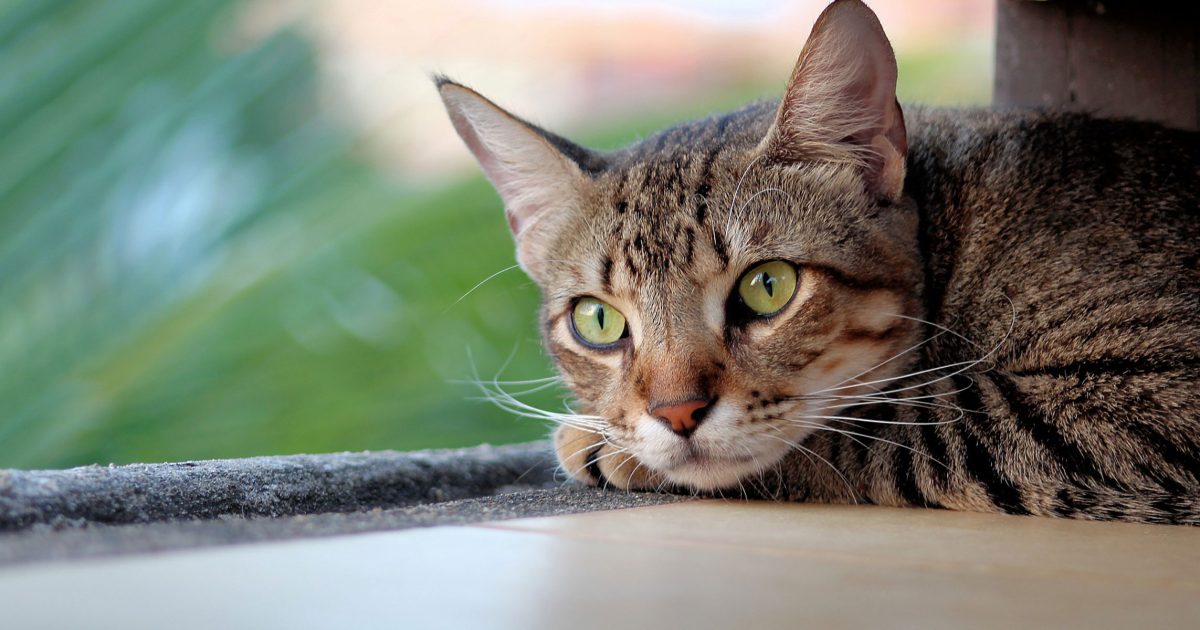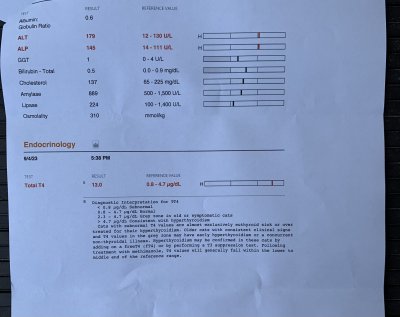- Joined
- Aug 1, 2018
- Messages
- 234
- Purraise
- 212
I know in a small percentage of cases hyperthyroidism can cause a cat to lose their appetite. We have a 16 year old cat that was always a big eater, think take food off of your plate eater. She was always healthier other than last year they gave her a liver supplement and said her liver levels were off but she finished it and it returned to normal.
About a year ago we noticed she had become a messy eater. It was like when she was eating wet food it was coming out of her mouth. Then a week and a half ago, she stopped eating and started to lose weight. She continued to drink water and use the litter box. We took her to the ER vet and all the labs were normal but the thyroid, so they gave us some pills and a shot for nausea. There is nothing wrong with her mouth. She has regular dental cleanings. The only other symptom is that she does this thing (has been doing it for a year ) where she twitches her eyes and head, i’s almost like she’s seen something that surprises her. It’s not a seizure or a tick and we cannot relate it to any one cause .
She has been on the meds for a week today. She still won’t eat on her own. We are feeding her high protein gels and food through a syringe every hour and it does seem to be helping. When we put food in front of her she moves away. We take her for follow up. On Saturday but I think it’s something more. She does not appear to be in pain but something is going on.
Any ideas? Thanks.
About a year ago we noticed she had become a messy eater. It was like when she was eating wet food it was coming out of her mouth. Then a week and a half ago, she stopped eating and started to lose weight. She continued to drink water and use the litter box. We took her to the ER vet and all the labs were normal but the thyroid, so they gave us some pills and a shot for nausea. There is nothing wrong with her mouth. She has regular dental cleanings. The only other symptom is that she does this thing (has been doing it for a year ) where she twitches her eyes and head, i’s almost like she’s seen something that surprises her. It’s not a seizure or a tick and we cannot relate it to any one cause .
She has been on the meds for a week today. She still won’t eat on her own. We are feeding her high protein gels and food through a syringe every hour and it does seem to be helping. When we put food in front of her she moves away. We take her for follow up. On Saturday but I think it’s something more. She does not appear to be in pain but something is going on.
Any ideas? Thanks.












